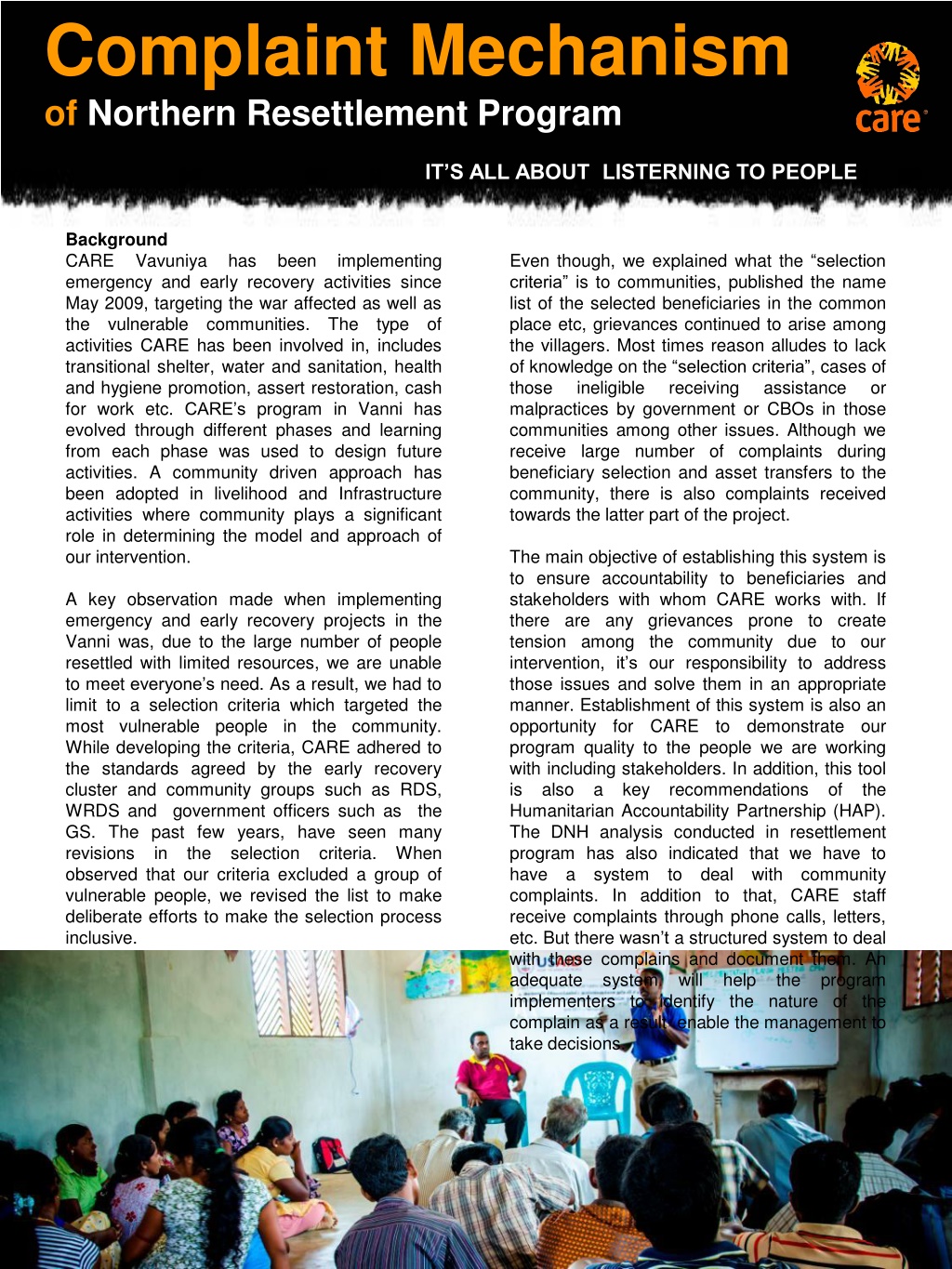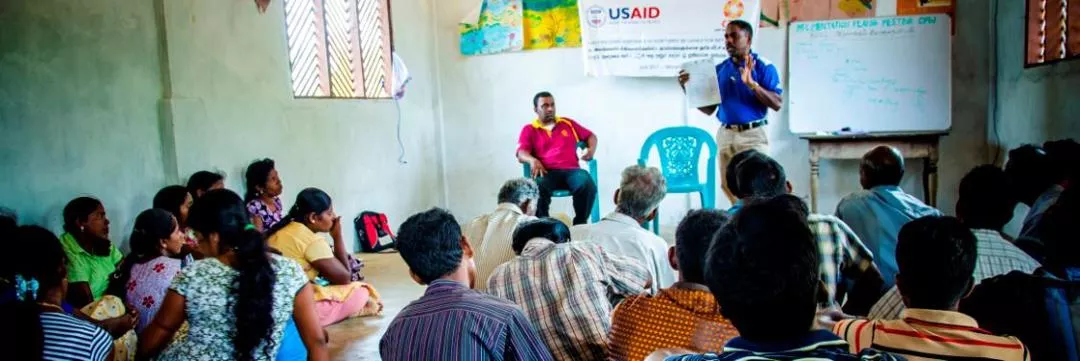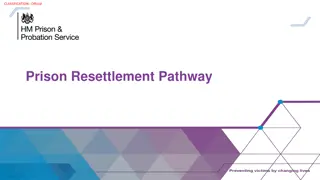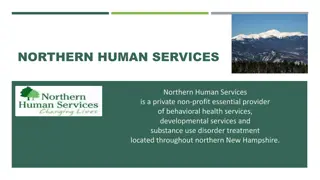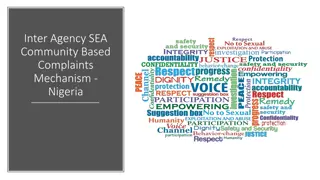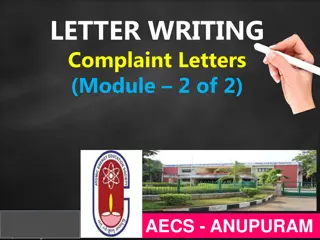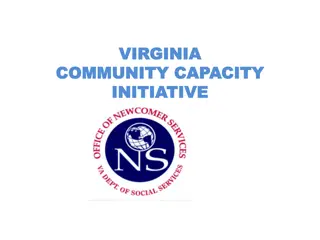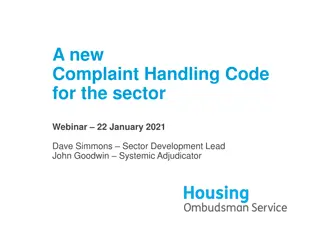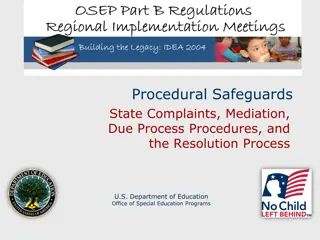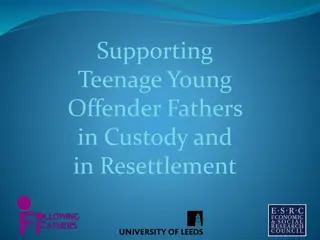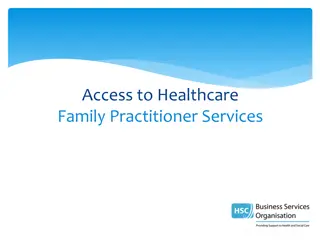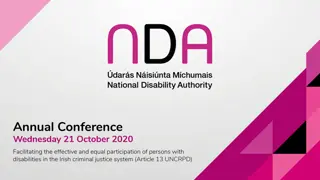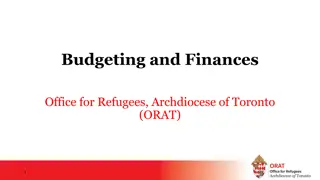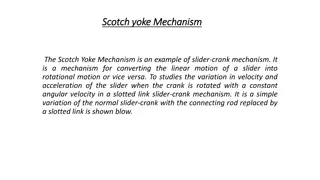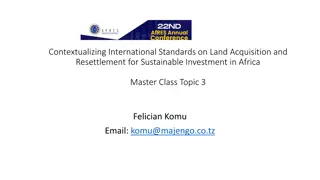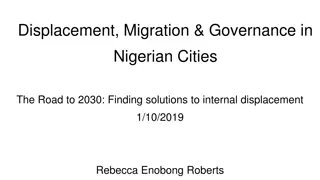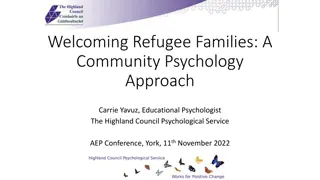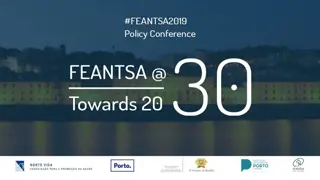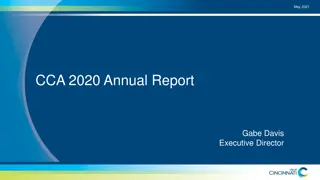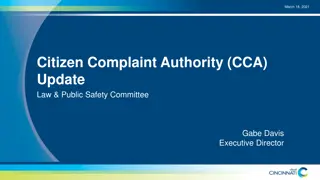Innovative Complaint Mechanism for Northern Resettlement Program in Vavuniya
The Northern Resettlement Program by CARE involves various activities to aid war-affected and vulnerable communities. Despite efforts to explain selection criteria, grievances arose among villagers, leading to the establishment of a structured complaint mechanism using telephones. The Program Management Team in Vavuniya implemented this innovative system to address complaints promptly and professionally, emphasizing the importance of staff engagement and commitment.
Download Presentation

Please find below an Image/Link to download the presentation.
The content on the website is provided AS IS for your information and personal use only. It may not be sold, licensed, or shared on other websites without obtaining consent from the author. Download presentation by click this link. If you encounter any issues during the download, it is possible that the publisher has removed the file from their server.
E N D
Presentation Transcript
Complaint Mechanism of Northern Resettlement Program IT S ALL ABOUT LISTERNING TO PEOPLE Background CARE emergency and early recovery activities since May 2009, targeting the war affected as well as the vulnerable communities. The type of activities CARE has been involved in, includes transitional shelter, water and sanitation, health and hygiene promotion, assert restoration, cash for work etc. CARE s program in Vanni has evolved through different phases and learning from each phase was used to design future activities. A community driven approach has been adopted in livelihood and Infrastructure activities where community plays a significant role in determining the model and approach of our intervention. Vavuniya has been implementing Even though, we explained what the selection criteria is to communities, published the name list of the selected beneficiaries in the common place etc, grievances continued to arise among the villagers. Most times reason alludes to lack of knowledge on the selectioncriteria , cases of those ineligible receiving malpractices by government or CBOs in those communities among other issues. Although we receive large number of complaints during beneficiary selection and asset transfers to the community, there is also complaints received towards the latter part of the project. assistance or The main objective of establishing this system is to ensure accountability to beneficiaries and stakeholders with whom CARE works with. If there are any grievances prone to create tension among the community due to our intervention, it s our responsibility to address those issues and solve them in an appropriate manner. Establishment of this system is also an opportunity for CARE to demonstrate our program quality to the people we are working with including stakeholders. In addition, this tool is also a key recommendations of the Humanitarian Accountability Partnership (HAP). The DNH analysis conducted in resettlement program has also indicated that we have to have a system to deal with community complaints. In addition to that, CARE staff receive complaints through phone calls, letters, etc. But there wasn t a structured system to deal with these complains and document them. An adequate system will help the program implementers to identify the nature of the complain as a result enable the management to take decisions. A key observation made when implementing emergency and early recovery projects in the Vanni was, due to the large number of people resettled with limited resources, we are unable to meet everyone s need. As a result, we had to limit to a selection criteria which targeted the most vulnerable people in the community. While developing the criteria, CARE adhered to the standards agreed by the early recovery cluster and community groups such as RDS, WRDS and government officers such as the GS. The past few years, have seen many revisions in the selection criteria. When observed that our criteria excluded a group of vulnerable people, we revised the list to make deliberate efforts to make the selection process inclusive.
COMPLAINT Mechanism system Considering the above factors, The Program Management Team (PMT) of Vavuniya agreed to set up an innovative complain mechanism system to deal with complains in a professional and timely fashion. In the past resettlement program did not have a structured system to receive and respond to complains of the community. While acknowledging the fact that mobile phones become an essential communication mode of many communities that we work with and challenges faced with traditional complaint systems by establishing complaint boxes, etc. The team decided to pilot a complaint mechanism using telephones. Any community member who wanted to make a complaint about CARE s programming are free to call our hotline number to register a complaint. Dial us..We are ready to listen you..!
PRE CONDITIONS Staff buy in It s critical that CARE staff both Field and the Management come to an agreement about this complain Mechanism and commit towards its implementation. implementing the proposed system, all the questions and concerns should be addressed and conclusions reached. CARE staff will be the agent of the proposed system who will implement it in their target project areas. Therefore their buy in is critically important. During the initial orientation about the new system to field staff, there were lot of questions and defensive feedback received by the management team and it was very difficult to convince the field teams to implement this system. Before Dedicated Management Responsibility management staff in implementing the mechanism. Area Director will be responsible in ensuring that management allocate sufficient time to review, reflect and take management decisions based on the analysis of the complaints that we receive. In addition, special complain committee was formed to review the complaints on a regular basis. should lie within key Create confidence Awareness raising and building confidence among villagers about this system is vital if it is to succeed. We are using several interventions such as postering, community meetings, and stakeholder meetings to enlighten them about the system and its functions. This is an important pre condition for the success of the mechanism. awareness and building
What type of complain will be received through this system? Selection of location. In Vanni, there is a competition among the villages to be selected for the humanitarian assistance. This is due to the fact that not all the villages get the assistance of the humanitarian organizations. When CARE select a village, there is a rational and reason for selecting that particular village. The complain mechanism will receive complain from people in relation to selection of villages Complain about CARE staff. The system will provide opportunity for villagers to make complain about CARE staff and their behaviors. CARE staffs are expected to maintain high quality in their work and have professional relationship with the beneficiaries and Evidence within CARE and other organization shows that sometimes staffs who works for the humanitarian organizations can involve in corruption, being bias for one group of people in the community, sexual harassment of beneficiaries, misuse of CARE property etc. Through this system, we expect to get community feedback to address these issues. other stakeholders. Selection of beneficiaries. An issue that creates tension among the community members is, how do we select beneficiaries? Why CARE selects a group of people and leaves others? On what criteria these beneficiaries were selected. Why certain group of people like less member families and people above 60 years of age are neglected etc. Although CARE is educating the people throughout the project about the selection process, villagers still have concerns. The complain mechanism will receive complains about the beneficiary selection. People can complain if someone not eligible included into the beneficiary list or someone eligible excluded beneficiary list. People can also request clarification on what basis an individual considered as beneficiaries. The system will also receive complain about the malpractices (if any) used by different actors (RDS, GS etc) while selecting the beneficiaries. Misuse of the CARE resource by the beneficiaries. When CARE provides assistance to the people, there is an agreement of how to use the assistance provided by CARE. This has been mentioned in the MOU sign with the beneficiaries. If any beneficiaries miss use the assistance, others can make a complain about this and CARE officers will take the action based on the complaint lodged from the Selection of beneficiaries Complain about CARE staff Types of complains Selection of location Complaints by Category Selection of beneficiary Selection of location 0% 94% 0% 6% About CARE staff CARE resource Misuse of the CARE resource
HOW the system works? A community member will call CARE hotline number to lodge a complain A trained and dedicated person who is based in complaint desk at Vavuniya area office will receive the call from the person listen to the complain and register on the complaint log book. While accepting the complain a specific time period will be given to the person who lodge the complain to provide the feedback/solution Complaint committee will meet once a week to review the complains registered in the log book and agreed on the follow up actions. Depend on the complain, assigned senior manager will consult with the field team member and get his/her opinion Investigate the complain and provide response to the person who lodged the complain. Complaint register will be updated with actions taken for each complaint. If the complaint about a CARE staff or resources, a senior manager will update the PMT (Vavuniya) about the progress and will inform to Colombo CO to seek further advicers. Will this complain mechanism replace already existing systems? We already have several systems of receiving and responding to complaints. For example, through our community meetings, individual meeting etc. the proposed system will not replace what already exists. Although we establish complain mechanism systems, we still respond to any complain that comes to us through meetings etc. But as much as possible, we will encourage people to use the proposed system
Complain Review Complain reviewing Committee The committee will consist of 4 staff, namely Area Director, 2 Project Managers and Strategic Support Coordinator. This committee will meet every week to review complaints. We are anticipating more number of complains during the period of beneficiary selection and assert transfers. During this period committees will meet every week. After asset transfer period is over, committee will decide the frequency of meetings. Some complains immediate attention. In which case, the committee will meet immediately and come to a decision. If a committee member is not available, others will contact him / her via phone. When contacting a committee member over the phone, confidentiality maintained. Complain reviewing committee is a sub group of PMT (Program Management team) of Vavuniya office. PMT meets every once in two week. An update will be given by the complain reviewing committee to the PMT. Hours open to complaints Hot line will be open to accept complains during office hours (from 8.30 5.30). Hot line will be closed after the office hours and no complaints will be accepted. Will anonymous calls be accepted? Although anonymous calls are not encouraged, due to the sensitivity of certain issues and protection aspects, some people may not be comfortable disclosing their names. Hence, anonymous calls will be accepted and given equal attention as regular calls. Management will review credibility of the anonymous calls and make a decision about the viability of continuing this service. will require will be Means of response. Following a complain review, management will identify a person to communicate our response to the particular beneficiary / non beneficiary. This could be a Field Coordinator, Project Manager or Area Director. Person will be identified by the management based on the issue. CARE will always resort towards direct responses and try communication when beneficiaries. i.e., if there are critical issues that requires the attention of GA, DS , then management will take a decision to write a letter or use other modes to communicate. When we receive a complaint from a beneficiary, we will agree on a time to provide an answer to that complain. It will be from 1 week to 10 days maximum. Who will receive the complaints The Strategic Support Coordinator (SSC) has been identified as a suitable candidate to receive the complaints from the community. She is part of CARE Sri Lanka s complain reviewing committee and possesses much experience on the subject. Due to the nature of her work, she spends lot of time at the office. The person who receive the complain should stay at office mainly to answer calls. Therefore, SSC has been nominated for this responsibility. In SSC s absence, the Junior Finance Manager will hold responsibility of receiving complains. to responding reduce written to the Authority limitations of the person who receives the complain. The person who receives the complain will not have authority to come to any conclusion or decide which complain needs to be recorded. The person will record all the complains and forward to the committee. Committee will then decide on how to follow up. Complainer by Gender (November 2012) Male 47% Female 53%
I was sick for particular day and I sent my brother for CAREs Cash for Work. But, the site supervisor did not accept him. So I heard about a telephone no of CARE and I tried that. I made my request through that phone number and a person recorded all the details politely. The CARE staff who responsible for our village is quickly responded to my complaint and my brother was accepted to participate in the CFW . S. Vanithatevi Udayarkattu South GND S. Vanithatevi Udayarkattu South GND Vanithatevi is a CFW beneficiary of CARE s resettlement project. She sent her brother for a particular day work due to her illness. However, CARE assigned supervisory team for CFW did not accept him and assigned to labour work. According to the project guideline, the registered person should come for CFW. But this regulation can be excused upon a valid justification. Vanithathevi called the CARE s compliant hotline and informed about her representative for CFW. Considering the urgency of this complaint, this was immedeiately informed to responsible FC and he instructed the supervisory team to accept her brother for CFW. S. Mahendran Iranaipalai GND I am a casual government staff and a father of 3 daughters and a son. I have applied for Livelihood assistance from CARE. However, when the selected list was displayed at community hall, my name was not included. Then I inquired from the RDS leaders and CARE volunteer. The reason was I am a government staff. However, later I met CARE officer for this village and I explained about my situation, two elder daughters are mentally and physically disabled. My total earning is even insufficient for caring my two daughters. CARE staff informed me that, she will consider after the discussion at office in the 2nd phase of beneficiary selection. Meanwhile, I also informed through the CARE s telephone number mentioned in the posters in our village. One week later, an officer visited from CARE noted all details about our family situation. Finally they selected me as a beneficiary in first round itself. I am very much happy about the response of CARE over the complaint I made. Prepared by Resettlement Team Designed by Maithree Abeyrathna
For more information: CARE International - Vavuniya Area Office No, 77 Temple Road, Kurumankadu TP: 024 224074
